THE
MAGAZINE
FOR WOMEN WHO ADVISE, PLAN, SPEND, SAVE AND GIVE


THE
FOR WOMEN WHO ADVISE, PLAN, SPEND, SAVE AND GIVE

Using behavioral finance to better serve clients


Surprising Career Pivots
RBC’s Growth Programs
Holiday Gift Ideas





At RBC Wealth Management, we have a dedicated focus on the financial advisor-client relationship. We provide you with coaching and resources to help you serve your clients. If you’re looking for a place that values autonomy while prioritizing the advisor-client experience, consider RBC Wealth Management.
To learn more about how your path can lead you here, visit www.rbcwm.com/yourpath
As we step into the fall season, it’s a time to sharpen our focus, embrace change and look toward what’s next. The women of RBC are always looking to the future while also understanding the importance of the past.
In our cover story, financial advisors Reva Shakkottai and Jackie Larson share their insights on incorporating behavioral finance concepts into client conversations. This approach often begins with understanding their clients’ “money scripts,” or narratives about money that are formed early in life.
My own money script was shaped by my upbringing. My family didn’t discuss money other than to mention paying bills. My parents also instilled in my sisters and me the importance of being strong and independent, and I carried that sense of self-sufficiency into my marriage.
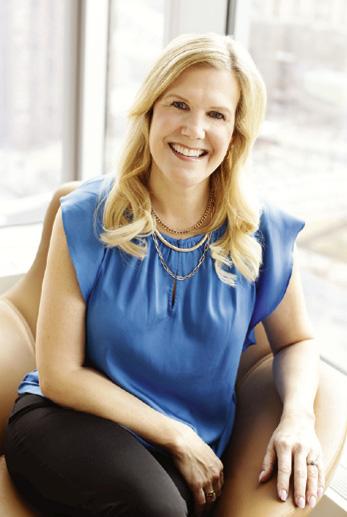
When my husband and I first combined our finances, it was a significant adjustment for me. And when he started asking for my receipts after I came home from shopping…well, let’s just say it didn’t go over well! I made my own money and felt I had the right to make my own choices about how to spend it. We had different perspectives when it came to spending money, and recognizing and understanding each other’s money scripts has been invaluable.
Tammy Haygood is another advisor who knows how money scripts impact client decisions. We asked her about her work leading financial education
THE ABILITY TO LISTEN AND FORM DEEP CONNECTIONS IS A STRENGTH THAT WOMEN, INFORMED BY THEIR OWN UNIQUE PASTS AND STORIES, BRING TO THEIR ROLES AS FINANCIAL ADVISORS.”
sessions with generations of fellow Alpha Kappa Alpha sorority sisters to help women understand their biases and how they might think differently about money.
Every part of our history shapes who we are, including our career paths. In this issue, we feature the stories of Stacia Apostolos and Mary Wetzel, who made successful mid-career changes, leverag-
ing RBC resources to become financial advisors. Their stories are a testament to the power of taking calculated risks and pursuing new opportunities.
We also highlight women who transitioned into financial services from wide-ranging professions, carrying forward life lessons and essential skills from their previous roles. Take Darla Kashian, a former chef who incorporates elements of “mise en place” and restaurant hospitality into her practice.
Finally, with year-end approaching, we present timely gift-giving inspiration and tips for helping families create philanthropic legacies with donor-advised funds.
This fall issue of Prosper US celebrates the drive, empathy and leadership of women advisors who are helping their clients find clarity and confidence in their financial futures. The ability to listen and form deep connections is a strength that women, informed by their own unique pasts and stories, bring to their roles as financial advisors. These skills serve them well as more women take charge of their finances and build wealth like never before.
I hope you find inspiration in these stories from the #WomenofRBC!

SHAREEN LUZE Head, Business Administration RBC Wealth Management—U.S.
Everyone’s road to becoming a financial advisor looks different. That’s certainly the case for these four women, who had starkly different jobs before pivoting to financial services.
Palm Desert, California

What’s a lesson you learned from your previous job that still applies to your work as an FA? Be curious. Ask questions—even uncomfortable ones—because that’s how you learn, and in this business, the more you know about your clients, the better you can help them. What prompted you to pivot to financial services? Friends have always asked me what I was investing in, but during the pandemic, it became a common occurrence. I found it incredibly gratifying to see friends and acquaintances succeed based on my advice. What do you miss about your previous career? I used to do a lot of interviews, and I enjoyed that deep dive into different businesses, from coffee and chocolate brands to companies that make geothermal power plants and microchips. Now, I get to work with people and do deep dives into their personal lives and finances.
Newport Beach, California

What’s a lesson you learned from your previous job that still applies to your work as an FA? Tenacity and resilience. I pushed my body and sometimes had to breathe through the physical pain. It also helped me build confidence. It’s a vulnerable experience to perform in front of hundreds of people. What prompted you to pivot to financial services? A friend of mine was looking for a receptionist at an advisory firm, and I fell in love with the business. It was so different and meaningful to help others. Having firsthand experience in my own transformation helps me connect with clients who are in various life stages. What do you miss about your previous career? Being free to express myself in a more visual way and bring the beauty of art to an audience.
Philadelphia, Pennsylvania
Can You
Match Each Advisor With Her Former Job?
Dance Instructor
Marketing Copywriter
Government Official Art Gallery Director
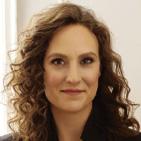
What’s a lesson you learned from your previous job that still applies to your work as an FA? The ability to translate complex concepts into a familiar language is a skill I continue to use every day with clients!
What prompted you to pivot to financial services? I’ve always had a passion for helping women gain clarity around their finances. When a friend invited me to switch careers to do so professionally, I jumped at the chance. I had young children at the time, so I was also grateful to find a fulfilling career path with less international travel and fewer events on nights and weekends. What do you miss about your previous career? I loved seeing the first shows of an artist’s new work in cities around the world. Gallery shows are the concentrated experience of an artist’s current vision and practice. They are incredibly immediate and pure.
Chevy Chase, Maryland
What’s a lesson you learned from your previous job that still applies to your work as an FA? Good listening skills, which give you the ability to home in on what is important to the person you’re communicating with and foster deep, lifelong relationships.

What prompted you to pivot to financial services? I was tired of putting in 18-hour days, with no free time or control over my schedule, and having my secretaries and my husband’s secretaries negotiating for us to be able to have dinner together.
What do you miss about your previous career? I miss being in the thick of politics and effecting change on a broad scale. Plus, having frequent meetings with cabinet secretaries and the president of the United States was pretty exciting.
Tammy Haygood shares insights with the next gen at her college sorority.
When the Xi Omega chapter of Alpha Kappa Alpha Sorority Inc. asked Tammy Haygood (a fellow AKA) to speak to a group of women about investing, she didn’t hesitate. AKA is the oldest sorority established by African American women, founded on the campus of Howard University, and giving back is built into its mission.
The Washington, DC–based financial advisor knew one presentation wouldn’t be enough to share all her knowledge— and give back. Her practice focuses on economic empowerment, especially that of women, and she knows financial education can lead to economic stability. So Haygood decided to host a series of six workshops on how to weather financial stress during the holidays, on strategies for giving mindfully and also for college graduates entering the job market.
Haygood, who is an engineer, a physicist and a lawyer in addition to being a wealth and portfolio manager, really knows the value of education. It’s also crucial for those choosing a career path to understand the return on investment, she says, and the cost of one’s education versus their earning potential. While this shouldn’t be discouraging, it should be part of the decision-making process when choosing a college.
“Particularly for communities of color, it’s a powerful conversation,” she says. “So much of our assimilation historically has come from education as a means to be accepted.” Haygood also notes that even prior to going over budgeting, saving and investing with an advisor, young women can benefit from a financial planning session specifically about funding their education.

my dad was forced to move our home by eminent domain. He picked up the house and moved it to a new land since he was only paid for the land.”
Angie O’Leary, RBC Wealth Management’s head of Wealth Strategies and Solutions, joined Haygood for some of the workshops, illuminating that everyone has a “money script” that influences their views on money and how they manage it.
“Money scripts incorporate family history,” Haygood says. “My granddad was a sharecropper where the landowner took most of the profits from his crops. And when I was in seventh grade,
This July, the annual RBC Fights Hunger campaign brought together RBCers to coordinate food drives, make snack packs, plant gardens and cook meals—all to make an impact for those experiencing food insecurity. In the spirit of friendly competition, branches of RBC Wealth Management–U.S. went head-to-head to see who would give the most time. Congrats to the team from the Texas North Complex (pictured right) for reaching 660% of its volunteer goal.
In addition to sharing wisdom about wealth with Xi Omega, the workshops were a place for the community to gather—with music, food and opportunities to ask questions.
“People often shy away from talking about core financial issues,” Haygood says. “These workshops provide a lane to discuss difficult topics.”

BY CATHY WALKER
Donor-advised funds (DAFs) have become an increasingly popular charitable giving vehicle for high-net-worth families looking to create a lasting philanthropic legacy. They can be a convenient, flexible and tax-efficient way to support a client’s giving goals—without the time commitment and administrative lift of a private foundation.

DAFs can also offer valuable opportunities for financial advisors to deepen their client relationships and engage the next generation of families. When talking to your clients about DAFs, here are four key features to keep in mind:



Clients can contribute as much and as often to the fund as they want, enabling them to be both thoughtful and strategic with their giving. Clients can bunch contributions during highincome years and take an immediate tax deduction, but gifts can be made over time. And funds can remain in the account to grow tax-free, potentially increasing the amount available for charitable grants.


DAFS CREATE A NATURAL OPPORTUNITY TO BRING A CLIENT’S CHILDREN AND GRANDCHILDREN INTO THE GIVING CONVERSATION, AS WELL AS PROMPT DISCUSSIONS ABOUT FAMILY VALUES AND LEGACY.”
DAFs create a natural opportunity to bring a client’s children and grandchildren into the giving conversation, as well as prompt discussions about family values and legacy. Clients can involve younger generations in choosing charities to support, as well as name them as successor advisors on the DAF. This helps see that the family is aligned on their charitable priorities.

DAFs can accept more than cash. Donating noncash assets, such as appreciated securities, may enable clients to avoid capital gains taxes while directing more funds to causes and charities.
Because the sponsoring organization manages all the administrative and record-keeping aspects of the fund, DAFs are a fairly hands-off way for clients to manage their philanthropy. But it’s important to note that the trade-off for this convenience is a lack of total control. Clients make grant recommendations, but final grantmaking decisions are up to the sponsor. In most cases, clients’ wishes are followed, but it is not a guarantee.
DAFs can be an attractive option for high-net-worth families who want to be strategic about their giving. By understanding these benefits, financial advisors can help their clients make informed decisions about their charitable giving and engage the next generation in the process.
BOOKCLUB day-to-day
Darla Kashian has been in the financial services industry for more than 20 years, but she still uses many of the lessons learned in her previous career as a chef in her day-to-day work. Creating exceptional client experiences has been a through line for Kashian’s career.
That dedication to wowing clients is something she wanted to impart to her team, so she started a book group to read Unreasonable Hospitality by Will Guidara. The book highlights the power of listening to clients and creating bespoke experiences for them. Guidara, who runs the renowned Eleven Madison Park restaurant in New York City, shares stories of his team’s extraordinary efforts to make their guests’ days. They once took a family on a magical sledding trip to Central Park because the children said they’d never seen snow before. They even served a New York City hot dog to someone for dessert—when an employee overheard them say they’d always wanted to try one but never had.

This past June, more than 1 million fans watched some of soccer’s most talented players take part in a seven-on-seven world championship at The Soccer Tournament (TST). As an official tournament sponsor and the presenting sponsor of the TST women’s event, RBC Wealth Management was proud to help double the number of women’s teams participating in the event and provide equal prize money to the champions in the women’s and men’s brackets.
These stories illustrate the value of empowering employees at all levels to take the extra step in delivering outstanding service. Kashian believes this is highly transferable to the financial services industry, where building strong relationships with clients is crucial.
RBC Wealth Management’s own Shareen Luze had the honor of presenting the $1 million check to the winning U.S. women’s team. “As a former college athlete, I know how important it is to have a platform to showcase your talents,” Luze said. “I love to see RBC Wealth Management’s commitment to empowering women in sports and leveling the playing field—for today’s athletes and the next generation.”
sense of teamwork.
Inspired by the values of restaurant hospitality, the group is about to read Work Clean by Dan Charnas, which outlines how organization and the principles of “mise en place” support exceptional client experience. By investing time in discussing and exploring new ideas, the book group has become a valuable tool for generating innovative ideas on how to better serve clients and fostering a sense of teamwork.

RBC Wealth Management is harnessing the power of AI to support its financial advisors. An RBC-built, AI-driven technology, the Household Summary tool has been racking up the awards thanks to its ability to help advisors and their teams be more efficient by significantly cutting the time it takes to prep for client meetings. What used to take up to two hours and require manually pulling information from multiple systems now takes just moments—with the click of a button. The Household Summary tool was the finalist for a 2025 WealthManagement.com Industry Award and a winner of the 2025 Datos Insights Impact Award.



Sure, it’s the most wonderful time of the year—until you’re totally stumped on your gift list and the clock’s ticking. From the perfect present for the person who has everything to an experience to impress the in-laws, these bright ideas will beat the holiday blues and get them out ’n’ about after the holiday hoopla.
BY NATALIE LARSEN






Send your style-savvy crew to a color analysis sesh, where they’ll discover which tones best complement their features.

For the most dramatic giftees on your list: tickets to a touring Broadway show or a more homegrown production.
These cocktail kits have all the ingredients to shake up a night in (or make reservations at a local mixology class

for an excuse to dress up and go out). “The Lumberjack’s Wife” kit ($25) or “Matriarch Martini” kit ($23), from Shaker and Spoon, shakerandspoon.com
4
Take your hottest hits of the year from playlist to custom turntable tunes. Meld a medley just for the concertgoer in your life, complete with album art of your creation. Custom 12-inch vinyl mixtape (starting at $90), from Freestyle Vinyl, freestyle-vinyl.com





Just in time for the food prepping that comes with the impending festivities, cue up a knife skills class or channel your inner Martha Stewart with a baking tutorial. For the *seasoned* chef, level up their equipment with a Le Creuset or wrap up a book by the queen herself. Signature Enameled Cast Iron Dutch Oven (prices vary), from Le Creuset, lecreuset.com; Entertaining ($50), by Martha Stewart, from Williams Sonoma, williams-sonoma.com
A thoughtful poem delivered monthly to their mailbox— what more could a wordsmith want? Poem club subscription ($8 per month), by Brittany V Wilder, poemclub. brittanyvwilder.com

Leather bag charms featuring hand-painted pet portraits proudly proclaim their dog parenthood. Custom pet portrait bag tag (prices vary), by Artandpatina, from Etsy, etsy.com
BY AMANDA DOLAN
On my second day back from maternity leave, I hopped on a plane for a business trip. Although I had always traveled for work, this time was different. I hadn’t been on a work trip for months, and I would be apart from my son, Callan, for the first time since he was born. I thrive on making connections with people and solving complex problems, so I was excited to pick up my work again, but of course I would miss Callan while traveling.
I knew I wasn’t the fi working mother to feel this way. It’s a familiar feeling for many women who strive to balance their careers and family life. Thankfully, I had role models and mentors who showed me how it could be done—women who showed that a fulfilling career and motherhood didn’t need to be at odds. They gave me the confidence to become Callan’s mom in the first place, and for that I am grateful.
One of those role models is my former manager, Christie Grandbois, who is now the head of Transformation and Experience at RBC Wealth Management. When she needed to scale back her business travel to get involved with her daughter’s soccer, it opened the door for me to travel in her place. That opportunity helped me grow in my career, as I learned so much visiting RBC Wealth Management branches


RBC RECOGNIZES THAT FLEXIBILITY AND SUPPORT FOR WORKING PARENTS AND THEIR FAMILIES ARE ESSENTIAL FOR SUSTAINABILITY AND PERFORMANCE.”
across the country. Her example also showed me the importance of building a strong team. Taking a leave of absence after Callan was born was much easier knowing my team could step up and cover for me. Because of them, I was able to enjoy the generous parental leave RBC provides.

Afterward, I seamlessly jumped back into my work thanks to my team, who moved forward with our objectives and built strong momentum while I was away.
RBC recognizes that flexibility and support for working parents and their families are essential for sustainability and performance. There is a mentality here that family comes first. People were genuinely excited for me to become a mom, and my colleagues ask about my family not just as a courtesy but because they care. That is a key difference I see—and feel—at RBC. Colleagues at all levels have an interest in the people they work with, and they truly care about others.
Travel will always be a component of my job. Despite the progress the world has made in seeing mothers as multidimensional people, I am aware that not every working mother has the support system that I have, which, beyond RBC, includes my husband, extended family and childcare provider. My husband shares the load, and Callan, without even realizing it, teaches me to be present and enjoy the moment. As my son continues to grow, I know we will be faced with new challenges and dynamics, but it won’t hold me back.

As more is understood about the psychology of financial decision making, RBC advisors are tapping into behavioral finance to strengthen their relationships with clients.
BY TAYLOR HUGO
Julie Hanson only has to spend five minutes with a person to get a good inkling of their behavioral style. Whether it’s visual cues like making broad gestures with their hands, their tone of voice or the pace of conversation, Hanson, who works in RBC Wealth Management’s Practice Management group, applies the DISC model to understand which of the four behavioral styles—dominance, influence, steadiness and conscientiousness—is the dominant trait. While most of us are a combination of different styles, there’s one we typically gravitate toward more than the others.
Knowing someone’s DISC style can help you understand their communication prefer-
ences, how they respond to challenges and how they make decisions—crucial information for financial advisors guiding clients toward their long-term financial goals.
“The fun part is educating our advisors on how to take what they’re observing with their clients and understand what that means from a DISC perspective so they can be on the lookout for those stress behaviors, tensions or issues that could be showing up,” says Hanson. “We don’t want to profile our clients, but we do want to make sure that we’re deeply connecting and meeting them where they are.”
The DISC model is just one tool advisors can tap into as part of a larger movement toward
practicing behavioral finance, a field of study that observes how psychological factors can influence individuals’ financial decisions and market outcomes.
According to modern portfolio theory, markets operate with efficiency and investors are rational, allowing advisors to create portfolios for clients that maximize return for a given level of risk. “Yet in practice, investing is often driven by emotion,” says Reva Shakkottai, a financial advisor at the Manhattan Beach branch in California. “Many financial decisions are influenced by bias. Subconsciously, we often omit important information without realizing it, which is an opportunity for advisors to step in to identify those gaps and plug those emotional holes.”
The way we feel and make decisions about money can be traced back to childhood. Influenced by those closest to us, like parents, grandparents, friends and, later in life, partners/spouses, we form so-called money scripts, which are deeply ingrained, unconscious beliefs and attitudes about money. Some of those mindsets can create an unhealthy relationship with money, says Jackie Larson, a financial advisor based in Minnetonka, Minnesota.
“There are some families who have a lot of wealth, which may have been used as a tool for parents to influence their children’s behavior. As a result, the children may not value money, and that can lead to destructive behavior,” says Larson. “There are also a lot of families that didn’t talk about money and felt a scarcity mindset, which has a tendency to create the belief of ‘if I have it, I must spend it because it’s going to go away.’ That can also lead to an unhealthy relationship with money.”

As women, we have a natural gift for building relationships and guiding clients through these conversations. This gives us a unique edge in understanding life experiences that quietly shape financial biases.”
—Reva Shakkottai, Financial Advisor
According to psychologist Dr. Brad Klontz, we develop one of four main money scripts that drive financial behavior throughout our lives: money reverence, money status, money avoidance and money vigilance. Individuals with “money reverence” think that money brings power and happiness and that more money will solve all their problems. Those in the “money status” category believe that owning the newest and best things confers status. On the other end of the spectrum, people with the “money avoidance” trait think money is bad and that wealthy people are greedy and don’t deserve money. And finally, those in the “money vigilance” category embrace frugality, are committed to saving and are discreet about how much they have or make.
Over time, money scripts play into the development of biases, or patterns of deviation from rational
decision making that can influence an individual’s financial choices, potentially leading to choices that are not in their best interest.
“When a client talks about growing up with Depression-era parents who worried about whether there would be meat on the table each week, that reflects a very different set of biases than a Gen Xer raised by confident, entrepreneurial parents who built businesses and thrived on risk,” says Shakkottai. “Asking about someone’s childhood, their attitude toward money and how their parents earned and spent money can reveal a lot. As women, we have a natural gift for building relationships and guiding clients through these conversations. This gives us a unique edge in understanding life experiences that quietly shape financial biases.”
There is no way to avoid biases; everyone has them. But by recognizing and addressing their clients’ biases, advisors can lessen the impact of these psychological weaknesses on wealth planning and financial decisions. “We cannot force rational thinking, and we are not trying to rewire human nature, but savvy advisors can help clients guard against the biases that cloud judgment and steer decisions back on course,” Shakkottai says. “The goal of behavioral finance is to bridge the gap between how clients should make financial deci-
sions and how they actually do. It is not about chasing perfection; it is about avoiding predictable mistakes driven by impulse, intuition or feelings. We can help our clients moderate or adapt to the biases, resulting in better financial outcomes.”
There are numerous behavioral finance biases that can impact our money decisions, but here are some of the most common, along with mitigation techniques for advisors:
Confirmation bias: Seeking out information that supports an already held belief and rejecting information that conflicts with it. In investing, this could look like solely focusing on the positive news about a favored stock while ignoring negative reports or signs of weakness.
Overconfidence: Overestimating skills and abilities, such as thinking the market can be timed.
Five tips for incorporating behavioral finance practices into advisor-client relationships.
1
Listen and take notes. Financial advisors are great at offering solutions, but it’s often best to listen first. When Shakkottai is working with a new client, the first thing she does is take out a sheet of paper. “I start with a blank sheet of paper, and I let them talk. Asking open-ended questions will help reveal their cognitive and emotional biases,” she says.
“People love to talk about their family, career and experiences. They are not just sharing memories, but they are also revealing a lifetime of financial decisions.”
2 Make clients feel comfortable.
Tailor each appointment to the client depending on their behavioral tendencies. Take the cautious investor, for example, says Shakkottai.
“Imagine walking into a meeting with me in my office, and the TV is on a financial news program.
The markets are tumbling, the screen is flashing red and the chyrons are highlighting panic. Will that be a good experience for a cautious investor? Not at all. How about meeting them in their own environment where they feel comfortable, perhaps in their living room or at their dining room table? It leads to better conversation.”
3 Talk through their personal money story. Encourage your client to think through their history, influences and experiences that have formed their relationship with money. Ask them questions like: Who has been most influential in your financial journey and why? What are some of your earliest posi-
tive and negative memories of money? What are some of your conscious and unconscious beliefs about money, and how would you change them? This could give you insight into their money script and behavioral finance biases.
4 Determine their risk tolerance. Oftentimes, the best way to understand somebody’s risk tolerance is knowing their actions and emotions during a recent market downturn. “I always ask a new client what their investing experiences have been like,” says Larson. “‘Give me one of your most successful investments and one of your most hated investments. How did they make you feel?’”
them to think about the future. It can be challenging for clients to understand that their behavior now can impact their future financial goals. “We don’t necessarily have an emotional connection to our future selves. How do you get people to make difficult financial decisions today that are going to allow them to take care of themselves and their families in the future without that emotional connection to their future selves?” says Hanson. It comes down to educating your clients, helping to dream with them, showing them the impact of maxing out their 401(k) instead of taking that trip to Cancun this year, for example. “You have to approach clients in so many different ways for it to really connect for them.”
Loss aversion: A bias that involves avoiding losses over achieving gains. This can lead to an investment portfolio that is too conservative.
Herd mentality: Following the actions of a large group of people, often without doing research and due diligence. Cryptocurrency is one recent example of how people hopped on a popular investing bandwagon, even though it may not have aligned with their longterm financial goals.
Recency bias: When an individual’s memory of a recent event makes them believe that event is more likely to occur again. After the financial crisis of 2008, for example, many investors pulled their money out of the stock market, believing it would continue to decline.
By taking the time to learn about a client’s life experiences and biases, financial advisors can better gauge their risk tolerance, understand whether they tend to act emotionally with their investment decisions and create a portfolio that meets their needs.
The more an advisor can understand a client’s mindset and motivations, the deeper their relationship will be. An emotional connection creates a strong bond between an advisor and client, which, in turn, helps build trust. That trust is important whenever there are fluctuations in the market. Behavioral finance comes into play whether markets are up, down or anywhere in between. Knowing your client and creating a personalized wealth plan for them will help them stay grounded through market turbulence. It’s a matter of getting clients to stick to their investment strategy—no matter how volatile the market may be. When you can anticipate how an investor will react to a market crash, you are better equipped to help them avoid overreactions that can lead to costly mistakes with their portfolio.
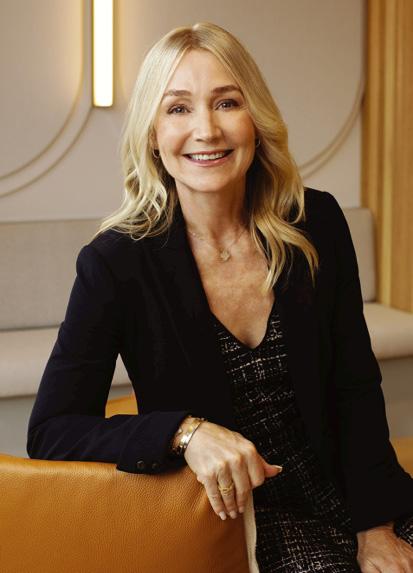
We can add a lot of value to the client’s experience when we walk alongside them, because I do think once they trust you, they’re a little less emotional about their financial decision making.”
“Market returns times investor behavior equals investor success,” says Larson. “I always tell clients we can’t control the market, and I remind them that their wealth plan is for the long term and designed to weather some market fluctuation.” She adds, “Human behavior in a crisis tends to follow a similar pattern and can lead to reactionary behavior. We’ve had a couple of market crashes. Every single time one of those crises happened, people worried that the market wouldn’t bounce back. They said, ‘It’s different this time.’ But historically, the market has come back over time and even climbed to new highs.”
When a crash or other financial crisis does happen, RBC’s Practice Management group trains its advisors in a concept called ACT: acknowledge, consider and transform. First, acknowledge that a client is experiencing strong emotions and ask them to verbalize how they’re feeling. “You don’t have to solve every issue,” says Hanson. “A lot of times, clients just need a trusted person who will listen and let them get it out.”
Next, consider. What is the effect of their biases or emotions that are coming into play? How are they impacting their lives and decision making? “We’re giving perspective and understanding, deepening that client relationship and then trying to refocus them on that longer-term, bigger picture,” says Hanson. “Take the emotion out by saying, ‘Let’s think about you in the future.’”
Finally, transform or take charge. Start outlining a path for making informed and rational decisions. “Reframe the conversation around goals and planning, not what’s going on in the market,” Hanson says.
Not only does this process deepen the client’s connection and trust with their advisor, but it also encourages them to think twice before acting emotionally rather than logically with their finances. “Getting them to slow down is essential. When investors rush into decisions at
lightning speed, they do not have time to fully process information, evaluate risk or consider the consequences,” says Shakkottai. “We have tools such as RBC WealthPlan, which maps out every facet of a client’s financial life and helps them identify their needs, wants and wishes. We organize everything into clear categories, analyze behaviors and identify patterns. By slowing clients down and breaking the plan down into small, digestible parts, we can help them plug those holes in the subconscious.”
Advisors who aren’t tapping into behavioral finance as part of their practice may be missing out on added value they can deliver to their clients. Research has shown that financial advisors often see asset growth when they incorporate behavioral coaching. Especially in today’s world of AI and robo-advisors, this highlights the benefit of working with a real, human financial advisor who can learn a client’s history, money script and biases and offer the appropriate support and advice to help them reach their goals.
“We can meet our clients where they’re at, help educate them and show them the importance of taking the emotion out of investing,” says Larson. “We can add a lot of value to the client’s experience when we walk alongside them, because I do think once they trust you, they’re a little less emotional about their financial decision making.”
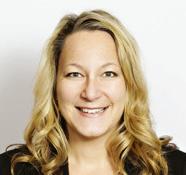
We’re giving perspective and understanding, deepening that client relationship and then trying to refocus them on that longer-term, bigger picture.”
—Julie Hanson, Practice Management & Teams Consultant
Julie Hanson’s Reading Recommendations for Advisors

Thinking Fast and Slow by Daniel Kahneman delves into the biases and heuristics that influence the two systems of thinking: fast and slow.

Surrounded by Idiots by Thomas Erikson explains how to improve communication by understanding different personality types.
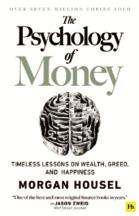
The Psychology of Money by Morgan Housel shows how a person’s personal history, unique view of the world, ego and pride affect their financial decisions.

From supporting mid-career changes to expanding expertise, RBC offers a deep well of resources to help financial advisors start, build and thrive. BY
SUZY FRISCH
Stacia Apostolos spent 20 years working on the retirement planning side of the financial industry, helping employer clients navigate their benefits offerings. Then she got an unexpected phone call from an RBC Wealth Management colleague. A financial advisor from a different branch planned to retire and was seeking someone to take over his book of retirement plan clients. The caller wanted to know if she would be interested.
Though Apostolos was intrigued, she was a bit nervous to shift gears mid-career to take over a practice. But as she learned more about the RBC Wealth Management Associate Financial Advisor (AFA) training program, she saw a great opportunity to make a career shift. The program prepares participants to become financial advisors, providing education, coaching and support while trainees complete required licenses. This gave Apostolos the confidence to take the step, so she began her AFA training in 2023 and completed the program this year.
“The AFA program really gave me the ability to jump into an advisor role and start immediately supporting an established book of business,” Apostolos says. “It was a win-win. I got everything I needed to start, and the advisor got to retire knowing his clients would be well taken care of.”
RBC’s depth of resources and professional development helps financial advisors launch, grow and thrive in their
careers. The AFA program is one that helps new employees and experienced professionals, like Apostolos, transition to an advisor role within the company. Its combination of training, mentorship, networking and resources set her up to join the GEN Group in Vienna, Virginia. The program also helps veteran financial advisors who are looking to grow their team. Often, advisors want to find someone who has complementary skills. They can tap into AFA resources to develop a high-potential candidate into a trusted successor, ultimately helping provide them with an off-ramp so they can retire, says Heather Rosales, head of Service and Learning Development at RBC.
“What is so special about RBC is the personal touch—the fact that you can get a hold of someone, have a dialogue and ask questions,” Rosales says. “And if we don’t have a resource, usually someone will build it so it’s available to the next person. When employees engage with training, they find value and influence enhancements for the next individual or team.”
For 50 years, RBC has offered the AFA program in various iterations, always with the goal of preparing employees to take on this important role, and it has recently evolved to include a greater emphasis on rigorous coaching, says Kevin Knock, senior new advisor development consultant at RBC.
“The AFA program is an incredibly valuable resource to the field,” Knock says. “It’s our duty to make sure that we are providing all the requisite resources for setting up a new advisor in a successful career and help senior advisors partner with them as they prepare for transitions.”
The AFA program made Mary Wetzel’s transition to financial advising possible after a 32-year career in banking. She had cultivated rich financial services expertise and customer relationship experience during her tenure as a bank manager. When a colleague moved to RBC as a financial advisor, he persuaded Wetzel to join his team and recommended that she go through the AFA program to get licensed. Wetzel decided to make the leap and joined the Green Bay–based Rashidi Group in 2021.
“This was the best move of my life,” she says. “It was an opportunity for me to manage my own clients, my own book, and not try to focus on 30 different jobs, which is what I was doing before. I should have done this a long time ago.”
Both Wetzel and Apostolos have a deep appreciation for the RBC programs and the possibilities they unlocked for them. “I feel really fortunate. I got to be where I am
This group supports advisor coaching and helps teams set their practices up for success.
Team Evaluations — Consultants assess team dynamics and build clarity for them to succeed, bring on new talent and expand.
Teaming for Transition — With succession planning top of mind for many advisors, the group supports experienced advisors by matching them with the right fit.
Business Planning, Setting Goals, Strategies and Tactics — Stating mission, vision, values and metrics allows financial advisors to communicate ideas among their teams and helps their practices run smoothly.
Prospecting and Referral Best Practices — Retention, growth, referrals and relationships are critical areas for a strong client experience. Consultants have created workshops focused on five key elements of building a best-in-class approach to client experience.

Beyond the AFA program, RBC offers many other professional development opportunities for new and seasoned employees, including:
RBC Wealth Planning Associate (WPA) Program, which prepares employees for wealth planning roles while opening doors to other careers, including financial advisor roles.
Women’s Association of Financial Advisors (WAFA), an employee resource group for more than 35 years. WAFA enables women in the business to learn from each other, access support and find mentors—helping them get where they want to go.
Annual Next Level Symposiums, where advisors connect and get ideas about how to grow their businesses. The events help advisors learn more about RBC capabilities, understand the latest industry trends and hear directly from leadership.
because I raised my hand and took a risk,” Apostolos says, reflecting on the doors that have opened for her as a result of the development programs. “I derive a huge sense of satisfaction from serving my clients. This career path gives me a sense of purpose, and I am passionate about helping people prepare for retirement every day.”
Wetzel found the AFA coursework a challenge, in the best way. She loves meeting with clients and helping them with their financial plans. “I got through it, and I’m thankful that I did,” she says. “It’s been an absolutely amazing journey.”
The experience was so meaningful that Wetzel is considering expanding her knowledge base with a retirement income certified professional credential. She is appreciative of RBC for affording her these opportunities to learn and grow. “I look for things that will be useful to my clients and my team. Any type of education is a good thing, and I won’t stop learning, because things are always changing,” Wetzel says. “RBC is a wonderful company. They provide you all of the resources you need.”

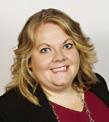
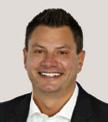
BY PATTI BAUM
It’s hard to fathom that it’s been four decades since I started my career in financial services. I was a 28-year-old recently divorced mother of two daughters, ages 1 and 4. I made just $11,000 that first year and had to pawn my engagement ring so I could feed my kids. I was completely broke and seeking purpose in work and life.
As a junior stockbroker, my job was to call as many people as possible in the hopes of turning one of them into a client. My tools were a landline telephone, a pad of paper and a healthy dose of persistence. I was inspired to excel at my job for my daughters, who in turn were inspired by my work. Instead of playing with Barbies or doing cartwheels, they played “stocks” with phones, ledger sheets and their big imaginations. They even spent hours with their friends “calling clients” trying to convince them to “buy a stock.” It’s amazing to reflect on just how much our kids absorb what we, their parents, are up to.

the COVID pandemic and everything in between. I’ve taught them how to save and invest—while imparting that wisdom to my daughters.
My daughters and their best friends watched me and my best friend, Margie Jackson, build a business together. They watched our practice grow and evolve from transactional to relationship focused. They watched us find our niche in responsible investing. And they watched us create our profession with purpose.
As it turns out, my daughters and I share many of the same passions and values. For years, they have asked me to invest their own money using responsible investing principles. I share my ideas about sustainable investment, and they bring me their ideas, too.
I’m so proud to see my daughters making impacts in their own ways through their careers. They both hold master’s degrees and have held exciting roles in consulting and the White House. The same girls who played stockbroker are now in leadership positions for companies dedicated to lowering costs for energy and health care for underserved communities.
To this day, I happily serve clients through my practice, The Baum Jackson Investment Group,

alongside my best friend, Margie. I am grateful she took my recommendation to start her own career in financial services—and that she ultimately agreed to become my business partner. Working alongside her still makes my career that much more rewarding.
My girls gave me the motivation I needed to dive fully into financial services. My dedication to my clients, my community and my family gave me the push I needed to take the reins in my career. And I could not be more grateful to all of them.
Announcing the 2025 award-winning #WomenofRBC.
ADVISORHUB
ADVISORS TO WATCH
Patricia Baum, Annapolis, MD
Catherine Chen, San Francisco, CA
Gabrielle Clemens, Boston, MA
Hilary Doherty, Kirkland, WA
Marina Galli, Palm Beach Gardens, FL
Kelly Hale, Portland, OR
Cynthia Hansen, Greenwood Village, CO
Brooke Hawley, Seattle, WA
Leksi Kovalerchik, Baltimore, MD
Heather Krause, Seattle, WA
Tania Kvakic, Phoenix, AZ
Leslie Lauer, Atlanta, GA
Barbara Letvinchuk, Nashua, NH
Courtney Mahoney, Providence, RI
Liza McCartney, Florham Park, NJ
Brooke McGeehan, Princeton, NJ
Jacqueline Milowe, Wellesley Hills, MA
Brynn Morris, Leawood, KS
Beth Norman, Madison, WI
Margarita Perry, Greenbrae, CA
Heather Reed, Eugene, OR
Beth Rosenwald, Baltimore, MD
Susan Singh, Vienna, VA
Paula Steinberg, New York, NY
Amy Sturtevant, Washington, DC
Kristie Svejda, Leawood, KS
Nora Yousif, South Easton, MA
TOP 100 WOMEN ADVISORS
Patricia Baum, Annapolis, MD
Catherine Chen, San Francisco, CA
Ann Marie Etergino, Chevy Chase, MD
AMERICA’S
BEST-IN-STATE
Emily Huffman, Rockville, MD
Katie Mueller, Billings, MT
Allison Oakey, Roanoke, VA
Heather Reed, Eugene, OR
Nora Yousif, South Easton, MA
$100M CLUB: TOP FEMALE ADVISORS
Jordan Bastien, Philadelphia, PA
Gabrielle Clemens, Boston, MA
Beth Dale, Atlanta, GA
Hilary Doherty, Kirkland, WA
Linda Donovan, Houston, TX
Rebecca Glasgow, Atlanta, GA
Jackie Hall, Lake Oswego, OR
Nikki Haskins, Albany, NY
Susan Hovanec, Washington, DC
Darla Kashian, Minneapolis, MN
Lisa Knutson, Green Bay, WI
Heather Krause, Seattle, WA
Tania Kvakic, Phoenix, AZ
Eden Lopez, New York, NY
Courtney Mahoney, Providence, RI
Cynthia McHugh, Westlake, OH
Brynn Morris, Leawood, KS
Katie Mueller, Billings, MT
Beth Norman, Madison, WI
Christian Ofner, Denver, CO
Margarita Perry, Greenbrae, CA
Valerie Ramo, Palm Beach Gardens, FL
Beth Rosenwald, Baltimore, MD
Leslie Schwartz, New York, NY
Reva Shakkottai, Los Angeles, CA
Teresa Soppet, Palos Heights, IL
Paula Steinberg, New York, NY
Kylie Strum, Rochester, MN
Amy Sturtevant, Washington, DC
Kristie Svejda, Leawood, KS
Gina Thompson, New York, NY
Nora Yousif, South Easton, MA
The 2025 AdvisorHub “Advisors to Watch” award was announced June 2025. Data as of 12/31/2023 and 12/31/2024 was provided and considered for this award. The ranking recognizes advisors across the country for their quality of practice, professionalism, character and community involvement. Criteria considered included: assets under management, production/revenue and team size. The financial advisor does not pay a fee to be considered for or to receive this award. This award does not evaluate the quality of services provided to clients. This award is not indicative of this financial advisor’s future performance. The 2025 Barron’s “Top 100 Women Financial Advisors” award was announced July 2025. Data as of 3/31/2025. Advisor rankings are based on qualitative criteria, including industry experience, degrees and industry designations, charitable work, and compliance records, and quantitative data including assets under management, types of assets they manage, revenue generated for their firms and client retention. Neither the firm nor the financial advisor pay a fee to be considered for or to receive this award. This award does not evaluate the quality of services provided to clients. This is not indicative of this financial advisor’s future performance. The 2025 Forbes “Top Next-Gen Wealth Advisors Best-In-State” award was announced August 2025. Data as of 3/31/2025. Forbes/SHOOK considered advisors born in 1985 or later with a minimum 4 years’ experience. Ranking is based on telephone and in-person interviews, professional credentials, advisor’s compliance records, firm recognition, and assets under management. Investment performance was not considered; and this ranking is not indicative of future advisor performance or any one client’s experience. The financial advisor does not pay a fee to be considered for or to receive this award. This award does not evaluate the quality of services provided to clients. For more information, visit www.SHOOKresearch.com. The 2025 InvestmentNews “$100M Club: Top Female Advisors” award was announced September 2025. To be eligible, nominees had to be female advisors with a minimum of $100 million in individual assets under management as of 12/31/2024. All nominee information was verified by their compliance teams before acceptance. Final rankings were determined by a weighted formula based on overall AUM, AUM growth, and client growth between 1/1/2024 and 12/31/2024. The financial advisor does not pay a fee to be considered for or to receive this award. This award does not elevate the quality of services provided to clients and is not indicative of the advisor’s future performance.





For decades, our financial advisors have built thriving careers at RBC Wealth Management. They’ve taken advantage of firm resources to grow their practices and make an impact on their clients’ lives. If you’re looking to take your career to the next level, RBC Wealth Management is where you want to be.
Your path can lead to RBC Wealth Management, scan the QR code to learn how.
